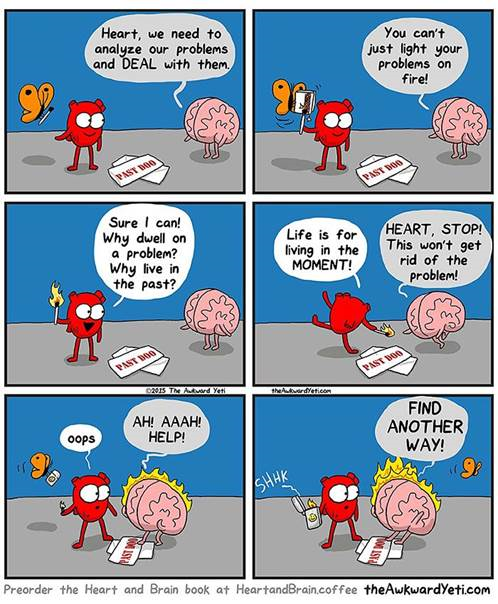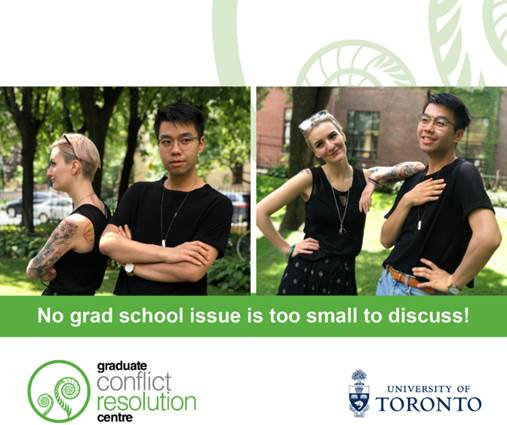Monday, May 11th, 2020...6:28 pm
QuaraConflict Musings
By Hifza, G2G Peer Advisor
As G2G peer advisor at the Graduate Conflict Resolution Centre I see a lot of examples of the types of academic, professional and interpersonal conflicts that occur in the graduate setting. Recently I’ve been spending a lot of time in quarantine musing on the ubiquitous nature of conflict. As the world grapples with the current pandemic, I cannot help but think about how we can find conflict in every direction we look. Tensions are running high as a result of shortages of personal protective equipment for medical professionals, rising employment and economic instability, and debates over how long to maintain the current mass-quarantine measures. These are all macro-level examples of conflict situations, but we all experience conflicts on the micro-level, in everyday life. These conflicts can cause strong visceral emotions and leave us feeling that what is important to us is being threatened.
So how do we better navigate the day-to-day-conflicts? Are there ways for us to take steps to minimize conflict and minimize the chaos and destruction it can leave in its wake? Research has shown that we can take steps to ensure conflict results in the most positive outcome possible.
Let’s close our eyes and think back to a difficult interpersonal situation we have faced and try to answer these questions in your head:
When did this take place?
Where were you?
What did you think was at stake? Did you know what the other person wanted?
How did you feel in the moment – angry, afraid, sad, nervous, impatient?
Was there a power imbalance?
Was the outcome of the conflict best case or worst case?
Feeling that you have been able to prepare for a situation to the best of your ability can be empowering. Reflecting back on your answers to these questions, consider how you might do things differently if you were approaching a conflict in the future:
Location & Timing: In conflicts, it is important to control the scenario (time & place) in which it happens to the best of your ability. When you are going to talk to someone about a difficult topic, it is best to try to book a time and place which makes everyone feel safe, with enough time to explore the topic (interests, options and next steps).
Emotions: There is rarely conflict without emotion. Take a moment to acknowledge what you are feeling. It’s ok to feel frustrated or sad when faced with a conflict. Naming the emotion and understanding what you are feeling however, will prevent you from “reacting” aversely, bring visceral reactions under control, and therefore allow you to become “proactive”.
Best-case & worst-case scenarios: Identifying the object of the conflict allows you to pinpoint what you hope to gain, and what would be the best case or worst-case scenario. Weighing potential gains and envisioning a best-case outcome would also allow you to control your emotions, which can overcome the best of us and may lead to adverse situations.
Be Proactive: Conflict can often creep up on you unaware, and therefore it is essential to be proactive so that you can turn a potentially negative experience into something positive. Indeed, the resilience of human beings is amazing; for every single macro conflict mentioned above, we are doing the best we can through gathering more information, working and collaborating with each other, and thinking about best- and worst-case scenarios. We will continue to do so as we confront the hurdles that will be inevitably placed in front of us in our lifetimes.

Together with my fellow G2G Peer Advisors we help fellow students navigate academic, professional, and interpersonal conflicts that occur in the graduate school. If you are facing your own conflict and would like to talk, please feel free to connect with a G2G Peer Advisor either through our Skype drop-in events or through booking an appointment on www.clnx.utoronto.ca.


Leave a Reply